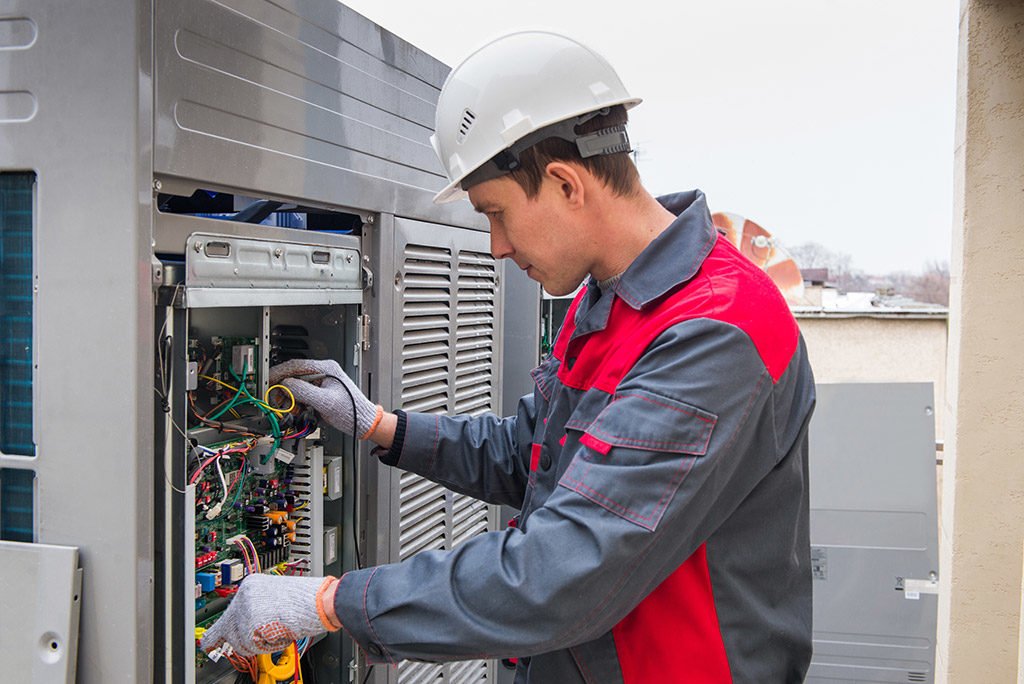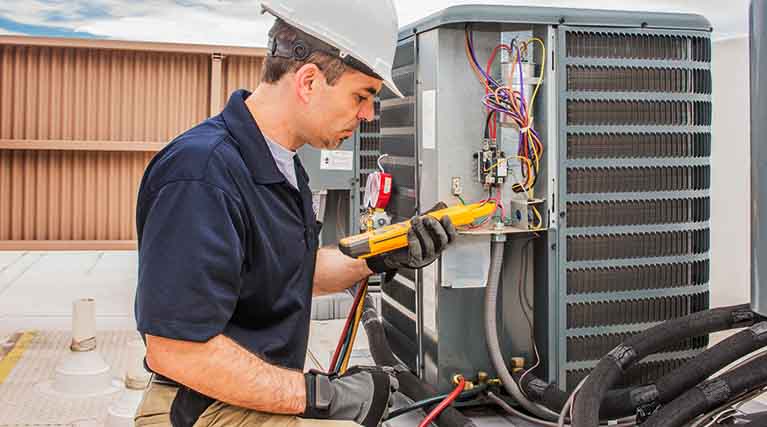Are you in search of HVAC installer jobs? If so, you’ve come to the right place. In this article, we will explore the world of HVAC installer jobs and everything you need to know to find the perfect opportunity for you. Whether you’re a seasoned professional or just starting out in the field, we’ll provide valuable insights and tips on how to land your dream job as an HVAC installer. So, dust off your resume and get ready to embark on an exciting journey in the world of heating, ventilation, and air conditioning installation.
What is HVAC?
HVAC stands for Heating, Ventilation, and Air Conditioning. It refers to the technology used for maintaining a comfortable indoor environment through heating, cooling, and air circulation systems. HVAC systems are responsible for regulating temperature, humidity, and air quality in residential, commercial, and industrial settings.
Definition of HVAC
HVAC is a technology that encompasses heating, ventilation, and air conditioning systems used to control and maintain the desired climate within a building or space. These systems work together to provide heating during the cold seasons, cooling during the hot seasons, and ventilation to ensure the circulation of fresh air. HVAC systems play a crucial role in creating a comfortable and healthy environment.
Importance of HVAC
HVAC systems are essential for creating a comfortable living or working environment. In residential settings, HVAC systems provide relief from extreme temperatures, ensuring that individuals can relax and sleep comfortably. In commercial settings, such as office buildings and retail spaces, HVAC systems create a pleasant atmosphere for employees and customers, thereby enhancing productivity and customer satisfaction. In industrial settings, HVAC systems help maintain a safe and suitable environment for workers and the products being manufactured. Overall, HVAC systems are vital for ensuring comfort, health, and productivity in various settings.
Qualifications and Skills Required for HVAC Installer Jobs
Becoming an HVAC installer requires a combination of educational background, certifications, and skills.
Educational background
While a high school diploma is the minimum educational requirement for entry-level HVAC installer jobs, obtaining a post-secondary education in HVAC technology or a related field can provide a competitive edge. Vocational schools, community colleges, and trade schools offer programs that provide knowledge and hands-on training in HVAC installation.
Certifications
Obtaining the necessary certifications is crucial for HVAC installers. The most common certification is the Environmental Protection Agency (EPA) Section 608 Certification, which is required by law to handle refrigerants safely. Additionally, HVAC installers can pursue certifications from organizations such as the North American Technician Excellence (NATE) and the Air Conditioning Contractors of America (ACCA) to showcase their competence and expertise in the field.
Skills
HVAC installers need a range of technical skills to excel in their job. These include a strong understanding of electrical systems, refrigeration principles, and hydronic systems. They must be proficient in reading and interpreting blueprints and technical manuals. Additionally, problem-solving and critical-thinking skills are essential for diagnosing and solving issues with HVAC systems. Good communication and customer service skills are also valuable for effectively interacting with clients.
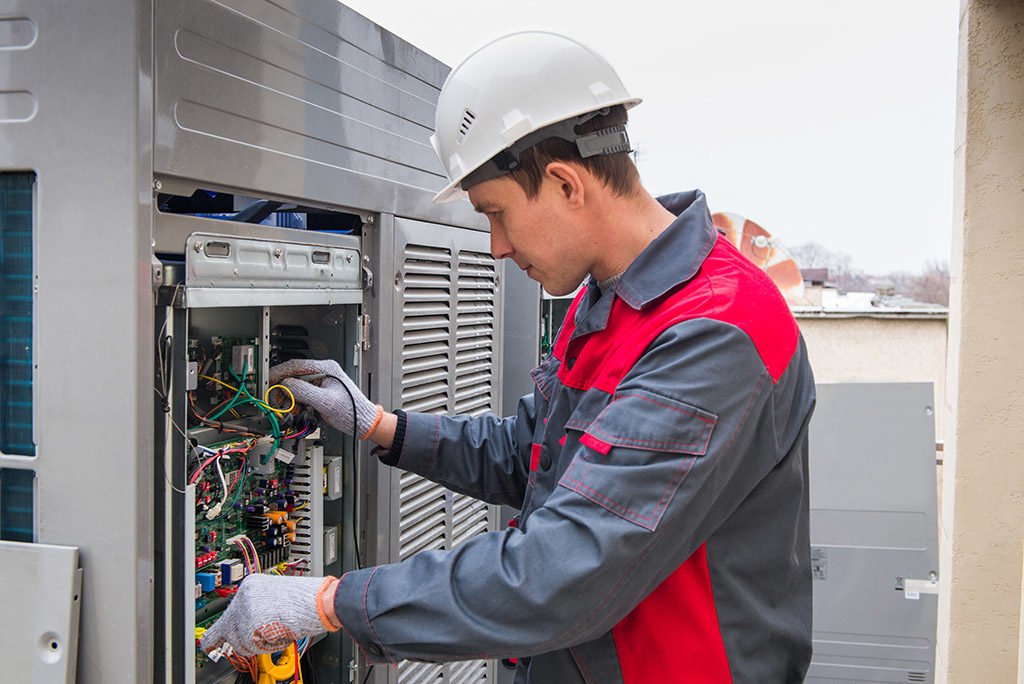
This image is property of www.onehourairftworth.com.
Job Responsibilities of an HVAC Installer
HVAC installers are responsible for installing, maintaining, and repairing HVAC systems in various settings. Their job involves a range of tasks to ensure the proper functioning of these systems.
Installation of HVAC systems
One of the primary responsibilities of an HVAC installer is to install new HVAC systems in residential, commercial, and industrial buildings. This involves following blueprints and specifications to determine the proper location for equipment, installing ductwork, connecting electrical components, and ensuring that all parts of the system are working together effectively.
Ensuring proper functioning
Once the installation is complete, HVAC installers conduct tests to ensure that all components of the system are functioning correctly. They check for proper airflow, temperature regulation, and calibration of controls. Any issues identified during this stage are addressed promptly to ensure optimal performance.
Performing maintenance and repairs
Regular maintenance is crucial for the longevity and efficiency of HVAC systems. HVAC installers are responsible for inspecting and maintaining HVAC systems by cleaning and replacing filters, lubricating moving parts, and inspecting electrical connections. In case of malfunction or breakdown, they troubleshoot problems, identify the root cause, and make the necessary repairs to restore the system’s functionality.
Types of HVAC Installer Jobs
HVAC installer jobs can vary based on the type of setting in which the work is performed. Here are three common categories:
Residential HVAC installers
Residential HVAC installers primarily work in homes and apartments. They install, repair, and maintain HVAC systems in individual residential units. This includes installing central heating and cooling systems, as well as ductwork, thermostats, and other related components.
Commercial HVAC installers
Commercial HVAC installers focus on larger-scale projects such as office buildings, hotels, and retail spaces. They handle the installation, maintenance, and repair of HVAC systems that are designed to meet the specific requirements of commercial facilities. This may involve working with more complex systems and collaborating with other contractors.
Industrial HVAC installers
Industrial HVAC installers specialize in HVAC systems for industrial settings such as factories, warehouses, and manufacturing plants. They install and service HVAC systems that are designed to meet the unique demands of industrial environments, including specific temperature and ventilation requirements. Industrial HVAC installers must have a strong understanding of industrial processes and safety regulations.
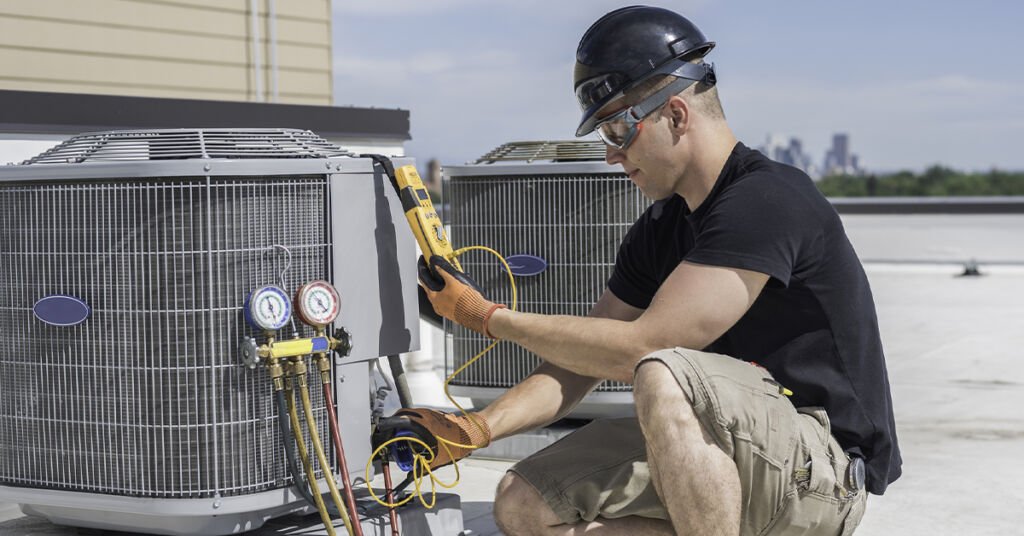
This image is property of sawinpro.com.
Finding HVAC Installer Jobs
To find HVAC installer jobs, it is essential to utilize various resources and strategies. Here are three effective methods for job seeking in the field:
Online job portals
Online job portals provide a convenient way to browse and apply for HVAC installer positions. Websites such as Indeed, Monster, and CareerBuilder feature job listings from companies across the country. Job seekers can search for HVAC installer jobs, filter based on location and experience level, and submit applications online.
Company websites
Many HVAC companies advertise job openings on their official websites. Checking the career or job opportunities section of HVAC companies in your target area can help you find relevant job postings. By directly visiting company websites, you can learn more about the company’s values, culture, and specific requirements for HVAC installer positions.
Networking
Networking is a valuable tool for finding HVAC installer jobs, as many job opportunities are not publicly advertised. Building connections with professionals in the industry, attending industry events, and joining industry-related associations can help you access hidden job opportunities. Informing your network of your job search and asking for referrals can lead to potential job leads.
Preparing Your HVAC Installer Resume
A well-crafted resume is crucial for showcasing your qualifications and skills as an HVAC installer. Here are the key sections to include in your resume:
Contact information and professional summary
Begin your resume with your contact information, including your full name, phone number, email address, and professional LinkedIn profile, if applicable. Follow this with a brief professional summary or objective statement that highlights your experience, skills, and career goals as an HVAC installer.
Education and certifications
In this section, list your educational background, starting with the highest level of education obtained. Include the name of the institution, the degree or certification earned, and the year of completion. Highlight any relevant HVAC coursework or specialized training you have received. Also, mention any certifications you hold, such as EPA 608 Certification or industry-specific certifications like NATE or ACCA.
Work experience and skills
Detail your relevant work experience in reverse chronological order, starting with your most recent position. Include the name of the company, your job title, dates of employment, and a description of your responsibilities and achievements. Emphasize your experience in HVAC installation, maintenance, and repair. Additionally, highlight any specific skills, such as proficiency in reading blueprints, knowledge of electrical systems, or expertise in specific types of HVAC equipment.
This image is property of res.cloudinary.com.
Interview Tips for HVAC Installer Jobs
Once you have been selected for an interview for an HVAC installer position, it is important to prepare thoroughly. Here are some tips to help you excel in your interview:
Research the company
Take the time to research the company you are interviewing with. Familiarize yourself with their services, clients, and values. Understanding the company’s mission and culture will allow you to tailor your responses and demonstrate your enthusiasm for the role.
Prepare for common interview questions
Prepare answers to common interview questions that employers typically ask HVAC installers. These may include questions about your previous experience, your technical knowledge, and your problem-solving abilities. Practice your responses to ensure you can articulate your skills and experiences effectively.
Demonstrate relevant skills and knowledge
During the interview, be prepared to demonstrate your expertise by discussing specific projects you have worked on and the challenges you faced. Showcase your problem-solving abilities and technical knowledge. Additionally, emphasize your commitment to safety protocols and your ability to work well as part of a team.
Salary and Benefits of HVAC Installer Jobs
The salary and benefits for HVAC installer jobs vary depending on factors such as location, experience, and the type of employer. Here are some key points to consider:
Average salary
According to the U.S. Bureau of Labor Statistics, the median annual wage for HVAC installers was $50,590 in May 2020. Entry-level HVAC installers may earn lower salaries, while those with significant experience and expertise can earn higher wages.
Benefits packages
Many employers offer benefits packages to their HVAC installers, which may include health insurance, retirement plans, paid time off, and opportunities for career advancement. It is essential to inquire about the benefits offered by potential employers during the interview process.
Opportunities for growth
HVAC installer jobs offer opportunities for career advancement and growth. With experience and additional certifications, HVAC installers can progress to supervisory or management roles. Some HVAC installers also choose to start their own businesses and become independent contractors.
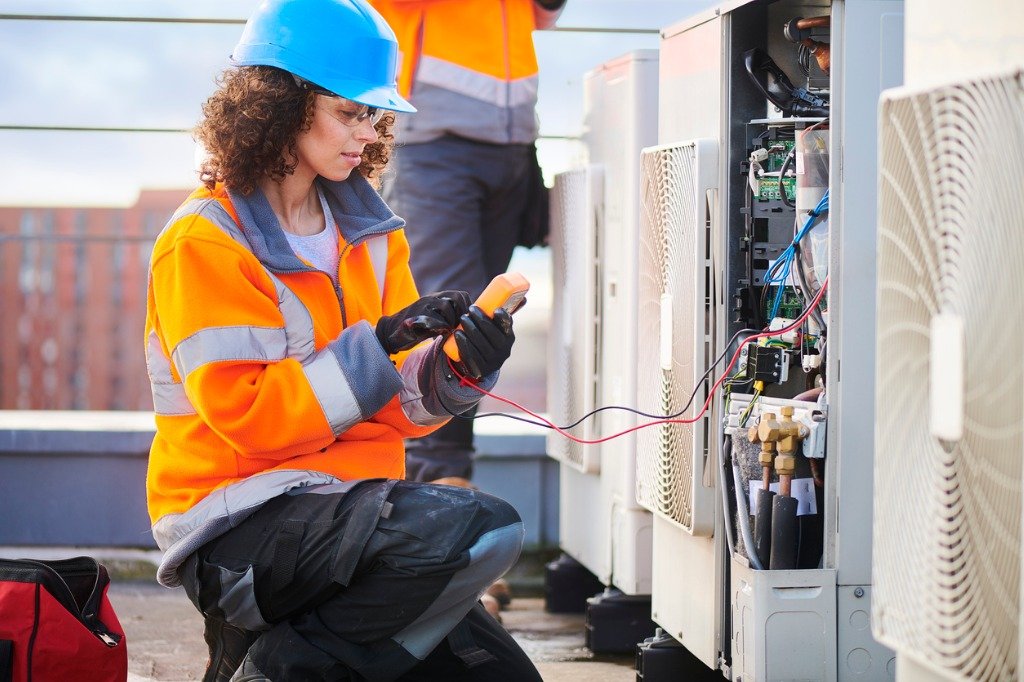
This image is property of skillpointe.com.
Advancements and Continuing Education in HVAC Installer Jobs
To stay competitive and advance in the HVAC installer field, continued education and skill development are crucial. Here are some ways to further your expertise:
Specialization and advanced certifications
Consider specializing in a specific area of HVAC installation, such as energy-efficient systems or specific brands of equipment. Advanced certifications, such as the Certified HVAC Service Technician or the Certified HVAC Designer, can demonstrate your expertise and open up new opportunities.
Continuing education programs
Stay updated on the latest industry trends and developments by participating in continuing education programs offered by educational institutions and industry organizations. These programs provide valuable knowledge and skills that can enhance your abilities as an HVAC installer.
Industry conferences and workshops
Attending industry conferences, workshops, and trade shows allows you to network with professionals and learn about new technologies and best practices. These events provide opportunities to expand your knowledge base and stay at the forefront of the HVAC industry.
Challenges Faced by HVAC Installers
While HVAC installer jobs can be rewarding, they also come with certain challenges. Here are a few common challenges faced by HVAC installers:
Physical demands of the job
HVAC installation often involves heavy lifting, climbing, and working in confined spaces. Installers must have the physical strength and stamina to perform these tasks safely.
Working in extreme weather conditions
Whether it’s scorching heat or freezing cold, HVAC installers often work outdoors and are exposed to extreme weather conditions. They must take appropriate safety precautions and dress accordingly to protect themselves from heat or cold-related illnesses.
Time management and deadlines
HVAC installers often have multiple projects to handle simultaneously. This requires effective time management skills to ensure that installations, repairs, and maintenance tasks are completed within the specified time frames. Installers must have the ability to prioritize tasks and meet deadlines.
In conclusion, HVAC installer jobs offer a rewarding career path for individuals with the necessary qualifications and skills. From residential installations to industrial settings, HVAC installers play a crucial role in creating and maintaining comfortable and safe indoor environments. By continuously improving their knowledge and skills, HVAC installers can enjoy opportunities for growth and advancement in the industry. Despite challenges such as physical demands and extreme weather conditions, the fulfillment of providing essential services and contributing to people’s comfort and well-being makes HVAC installer jobs highly gratifying.
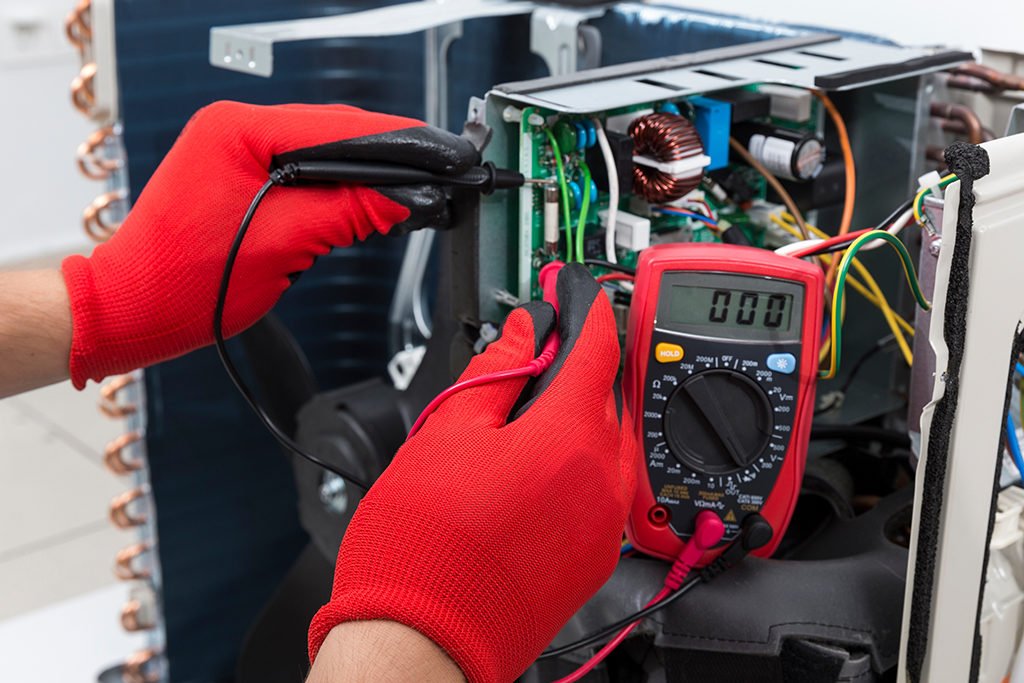
This image is property of www.onehourairftworth.com.

